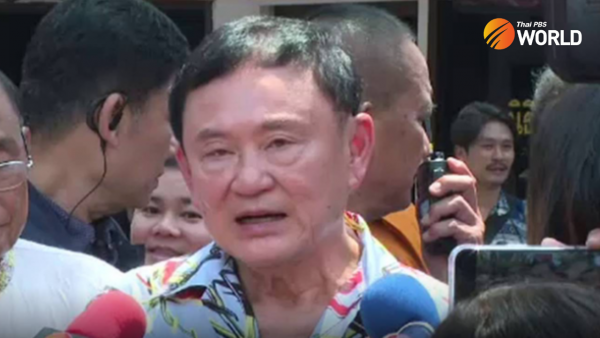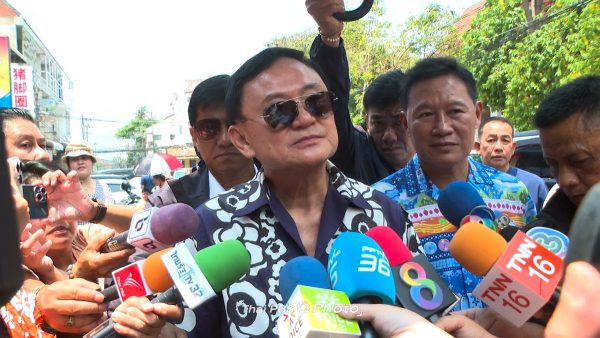The long and controversial history of Thailand’s law against royal insults

The draconian lèse majesté law is back in the spotlight after at least 41 people were slapped with royal defamation charges in relation to anti-establishment protests over the past few weeks.
The move to resume charging people with lese majeste after a two-year hiatus followed Prime Minister Prayut Chan-o-cha’s declaration in November that “all relevant laws and their sections” will be applied against protesters who break the law.
Leaders of the pro-democracy movement have stepped up the pressure in their push for Prayut’s resignation, a new, democratic Constitution and reform of the monarchy.
Protest leaders have broken the long-held taboo on debate of the monarchy with harsh criticism of the institution, especially the King. Meanwhile messages deemed by many as insulting to the royals were spray-painted at protest sites and posted on social media.
The protesters’ 10-point manifesto for monarchy reform includes a demand to repeal the lèse majesté offence in Article 112 of the Criminal Code, so that citizens can discuss the monarchy freely.
Lèse majesté has been an offence under Thailand’s Criminal Code since 1956. Article 112 of the law states: “Whoever defames, insults or threatens the King, the Queen, the Heir-apparent or the Regent shall be punished with imprisonment of three to 15 years.”
Debate has continued for decades as to whether the law should be repealed.
Advocates for abolition
Those who advocate the law should be abolished point to the fact that Article 112 has often been used for political purposes, to silence critics of those in power. Their argument is that the penalty is far too severe – with up to 15 years of imprisonment for each offence – and that it restricts citizens’ democratic right to free expression.
“Authorities base their decisions to enforce Article 112 on political reasons. It is used as a tool to retain political power and gag critics,” opposition Pheu Thai Party MP Somkid Chueakong said.
More than 1,000 people have been prosecuted under Article 112, according to political activist Somyot Prueksakasemsuk, who in 2013 was sentenced to 11 years in prison after being found guilty of lèse majesté.
Somyot, then editor of political journal “Voice of Taksin”, was held responsible for an article he published that was deemed to be insulting to the monarchy.
Other high-profile cases include award-winning activist Jatupat “Pai Daodin” Boonpattararaksa, who was slapped with lèse majesté charges in December 2016 for sharing a BBC biography of the King on Facebook. He was the first person to be arrested for lèse majesté in the new reign.
In November 2011, 61-year-old former truck driver Ampon Tangnoppakul was sentenced to 20 years in prison for four counts of lèse majesté and computer crime offences. A cancer patient, he died in jail while serving his sentence.
Called Akong (Grandpa) by the media, Ampon was accused of sending four short messages to a government official in 2010 containing insulting and threatening content directed at late King Bhumibol and Queen Sirikit. The defendant denied the charge, arguing that he did not know how to send a text message.
Records show lèse majesté cases soared after the 2006 military coup. The period from 1990 and 2005 brought just four to five cases per year, but the five years after the 2006 coup saw more than 400 cases.
The number of lèse majesté cases spiked again after the coup in May 2014 – to more than 350 between 2014 and 2017.
Thai Lawyers for Human Rights noted that under junta rule, courts tend to impose harsher punishments under Article 112 – up to 10 years’ imprisonment for each count. Meanwhile, defendants tried in military courts could face sentences of 50 to 70 years behind bars, the group said.
-
Article 112 can strengthen govt and agitate opposition
-
Sulak Sivaraksa – the ‘progressive royalist’ charged with lèse majesté 5 times
-
Being young and royalist in the midst of political conflicts
Supporters’ views
Royalists believe Article 112 is necessary to protect the King from being defamed since the monarch cannot file libel charges against his accusers, as ordinary citizens can. They argue that most countries have a similar law to protect their heads of state.
Anon Sakworawit, a lecturer at the National Institute of Development Administration, said that insults against the King “clearly increased” after Prayut revealed in June that Rama X had advised the government against enforcing Article 112.
There have also been calls for amendment of the lèse majesté law, with the most concrete and powerful coming from a group of law lecturers called Nitirat in March 2011.
Nitirat’s seven-point proposal includes removing the minimum punishment and fixing the maximum penalty to three years. It also says only the Royal Household Bureau should be allowed to file the charge – not any individual, as is the case now.

History of the law
The lèse majesté offence was first added to the Kingdom’s Penal Code in June 1908, during the reign of King Chulalongkorn (Rama V). The law prohibited insulting the king, the queen, the crown prince and the regent, as well as children of any Thai king – past or present.
For insults directed at the king, queen, crown prince and the regent, offenders faced up to seven years in prison and a hefty maximum fine of Bt5,000 – equivalent to more than Bt1 million in today’s currency.
Insulting the children of any Thai king carried a maximum penalty of three years in jail and a fine of up to Bt2,000.
In November 1956, the government of Field Marshal Plaek Phibunsongkhram promulgated a new Criminal Code which is still in force today.
The 1956 version removed the fine as well as the clause protecting the children of kings.
After the October 6, 1976 military coup, the junta issued an order to amend the Article 112 penalty from “no more than seven years” to “three to 15 years”.
This was the first time that a minimum penalty was set for lèse majesté, while the maximum term was more than doubled.
Amendment attempts
After the 2006 coup, more moves were made to amend the law through the National Legislative Assembly (NLA).
The proposed amendment called for a fine of Bt20,000 to Bt140,000, and additional protection for the King’s children, Privy Council members and the King’s representatives.
However, the NLA withdrew the amendment bill following strong opposition both at home and from the international community.
Two years later, Samak Sundaravej’s government – viewed as a proxy of former prime minister Thaksin Shinawatra – proposed a bill to amend Article 112.
The amendment called for anyone who makes lèse majesté accusations for political purposes without formally filing a police complaint, to be punished in the same way as those convicted of insulting the monarchy.
The proposal was withdrawn following criticism that it would make the lèse majesté law even more harsh.
By Thai PBS World’s Political Desk






